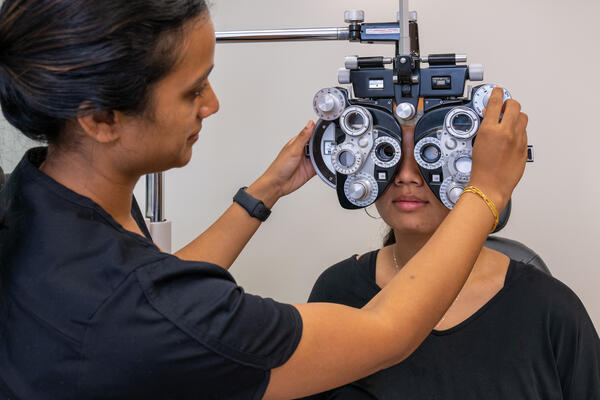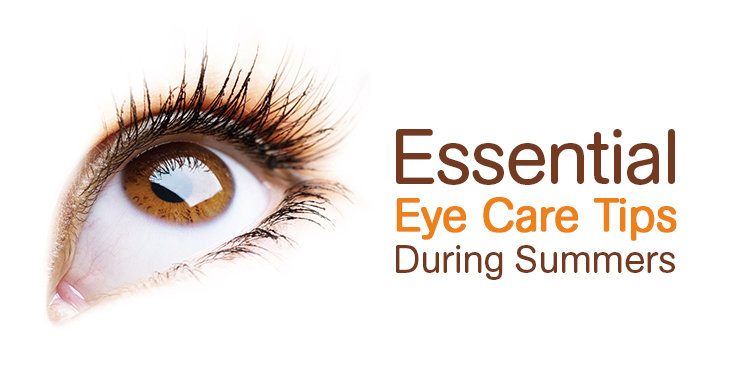Andalusia Eye Doctors: Dedicated Vision Care for Every Patient
Andalusia Eye Doctors: Dedicated Vision Care for Every Patient
Blog Article
Is Refractive Surgical Treatment Right for You? Variables to Consider for Better Eyecare
In the world of eye treatment, the choice to undergo refractive surgical treatment is a substantial one that requires thoughtful factor to consider. From the ins and outs of one's ocular health and wellness to the ins and outs of day-to-day behaviors and individual assumptions, each element holds importance in the broader landscape of refractive surgery candidateship.
Eye Wellness Analysis
When taking into consideration refractive surgical procedure, a detailed eye health evaluation is crucial to assess the viability of the procedure for each and every person. andalusia pediatrics. This examination includes a series of exams and examinations carried out by an eye treatment specialist to establish the general health of the eyes, the visibility of any type of underlying problems, and the stability of the refractive mistake
During the analysis, different aspects are considered, such as the patient's case history, present eye prescription, corneal thickness, student size, and tear movie top quality. These assessments aid to determine any kind of contraindications to refractive surgical procedure, such as corneal irregularities, cataracts, or without treatment eye infections. In addition, the analysis helps to manage client expectations relating to the possible outcomes of the surgical treatment based upon their distinct eye features.
Eventually, the eye health assessment is vital in making certain the safety and effectiveness of refractive surgical procedure, as it offers useful understandings right into the person's eye health condition and assists establish the most suitable therapy alternatives for attaining optimum visual end results. (eye center andalusia)
Way Of Living Analysis
A detailed way of life assessment is indispensable in determining the viability of refractive surgical treatment for an individual's aesthetic correction requirements. Lifestyle variables such as occupation, hobbies, and everyday tasks play a critical role in the decision-making procedure regarding refractive surgical treatment.
Additionally, lifestyle practices such as sports participation, outdoor activities, or even skin care regimens can affect the recovery procedure and general success of refractive surgery. By carrying out a comprehensive lifestyle analysis, eye treatment experts can tailor their recommendations and treatment strategies to fulfill the special requirements of each patient, ultimately leading to boosted aesthetic end results and fulfillment.
Expectation Alignment

Setting practical assumptions includes extensive pre-operative discussions in between the ophthalmologist and the patient. The doctor should transparently communicate the possible dangers, benefits, and constraints of the treatment (cardiologist andalusia). People need to understand that while numerous individuals attain 20/20 vision or better adhering to refractive surgical treatment, some may still call for glasses for specific tasks like reading or driving at evening. Handling these expectations assists prevent dissatisfaction and discontentment post-surgery, leading to a more favorable general experience for the person.
Threat Analysis

Variables that may increase the threat of problems consist of age, specific clinical conditions like autoimmune illness, unpredictable vision prescription, thin corneas, and impractical patient expectations. Additionally, picking a skilled and skilled cosmetic surgeon, adhering to pre and post-operative treatment instructions carefully, and disclosing any type of appropriate clinical background can help alleviate threats.
To minimize the possibility of complications, ophthalmologists carry out thorough pre-operative evaluations to determine any type of contraindications to surgical procedure. They additionally discuss the prospective dangers and advantages with people throughout the assessment process. By engaging in open communication and shared decision-making, both the individual and the eye doctor can function with each other to establish if refractive surgery is the right choice based on individual risk profiles and preferred results.
Examination Value
Thinking about the important duty of educated decision-making in examining dangers and possible issues in refractive surgical treatment, the examination process holds significant importance in guiding people in the direction of optimum end results. Throughout the assessment, the ophthalmologist evaluates the person's eye wellness, refractive errors, and overall viability for surgical procedure. This first evaluation is important in identifying one of the most ideal procedure for each person, taking into account elements such as corneal thickness, student dimension, and existing eye conditions.
In addition, the examination serves as an opportunity for patients to discuss their assumptions, worries, and any questions they might have regarding the surgical procedure. Clear communication in between the specialist and the patient is necessary to guarantee sensible expectations and an extensive understanding of the possible risks and benefits included.
In addition, the examination allows the specialist to explain the different surgical alternatives offered, their corresponding outcomes, and the post-operative treatment called for. This detailed discussion equips people to make well-informed choices concerning their eye care, resulting in far better satisfaction Read More Here and end results post-surgery.
Conclusion
To conclude, people considering refractive surgical treatment needs to undergo an extensive eye wellness analysis, assess their way of life routines, straighten their assumptions with potential outcomes, evaluate the connected dangers, and focus on examinations with eye care professionals. These aspects play an essential role in identifying the suitability of refractive surgery for every person, making certain optimal outcomes and satisfaction with the procedure.
Patients considering refractive surgery usually have high assumptions pertaining to the end results, anticipating best vision without the requirement for glasses or get in touch with lenses. While refractive surgical treatment can significantly improve vision and minimize reliance on visual help, it is critical for people to recognize that outcomes may vary based on specific variables such as the level of refractive mistake, corneal thickness, and overall eye wellness.
By involving in open communication and shared decision-making, both the patient and the eye doctor can work with each other to establish if refractive check this surgical treatment is the best choice based on specific danger accounts and preferred end results.
Taking into consideration the vital role of educated decision-making in examining risks and possible problems in refractive surgical procedure, the examination process holds considerable significance in guiding individuals towards ideal outcomes. Throughout the consultation, the eye doctor evaluates the client's eye wellness, refractive errors, and total suitability for surgical procedure.
Report this page